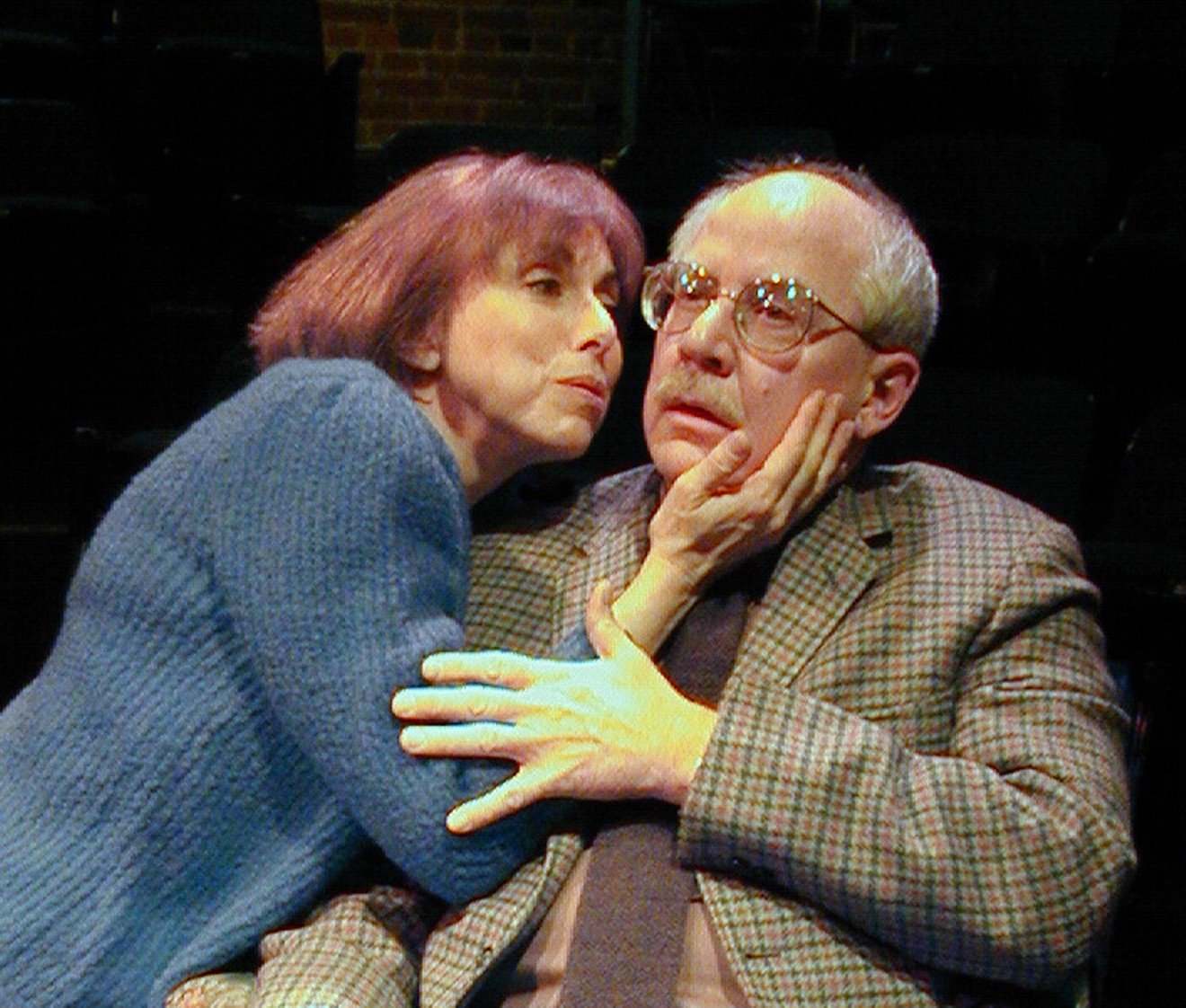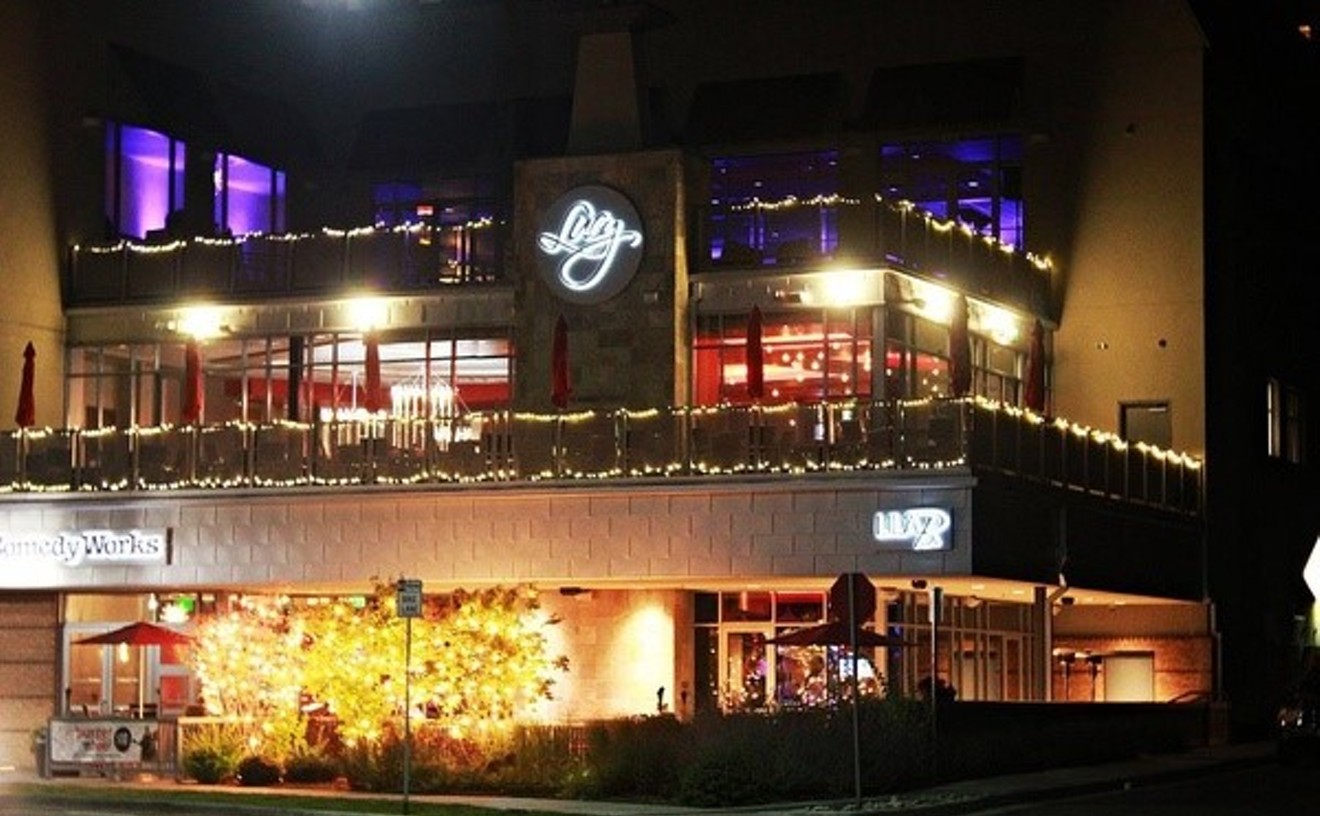Ed Baierlein, who founded Germinal Stage Denver in 1973 and oversaw pretty much every decision at the theater, from play selection to casting, outreach to finances and staging to site selection, has closed the curtain for good, dissolving the company.
The early 1970s was an interesting time to create a new theater company. The Denver arts scene was sparse. Few local folks had heard of Sam Shepard, then at the glittering height of his fame, and the Denver Center for the Performing Arts was nothing but a glint in planners’ eyes. On the plus side, space was relatively cheap, parking hadn’t yet become a nightmare, and the financial risk of starting an arts organization was less pressing. There were a handful of theaters here: Henry Lowenstein was working his magic at the Bonfils, dancers Al Brooks and Maxine Munt were bringing the vivid atmosphere of 1960s New York to the Changing Scene, and Joey Favre was running the Third Eye. “It was a fairly pleasant little theater community,” Baierlein recalls.
He had come to Denver as a young, would-be playwright not long out of the Air Force. “We went down to the Changing Scene because it looked like a fun place,” he says. “There was poetry and music. We met Al and Maxine and told them we were theater people and I had written a play called The Track Home. And he said, ‘Well, when can you do it?’” The play was staged within a month.
His goals in starting a company weren’t particularly lofty, Baierlein says: “Quite honestly, what I wanted to accomplish was just having a place to perform. I had done some summer stock and always felt this should be done on a year-round basis. We had no prospects, very little capitalization, enough to get us through a couple of shows. If we hadn’t had a hit or made money, we would have been dead in the water. We really didn’t know what we were doing.” It took a year to secure a space on Market Street, and then “in November, 1974," he recalls, "we opened our first show, The Entertainer. It was pretty much a flop.”
Still, Germinal turned out to be one of the most successful and stable companies in town. As rents rose, in 1987 Baierlein and his wife, actor Sallie Diamond, bought a building on West 44th Avenue and Alcott and created their own intimate world of erudition, exploration and creation there. Walking in, the first thing most audience members noticed was the scent of smoke from Baierlein’s ever-present pipe, and then Ed himself, sitting at the box office like a guardian genie. Dozens of photographs covered the walls, telling the story of years of productions and often featuring the same actors as they moved from youthful roles through middle-aged ones and beyond. Among the faces were those of Baierlein and Diamond, two of the finest acting talents Denver has known.
In 2013, the couple decided to sell the building. Afterward, they made a deal with the City of Westminster, which provided a renovated space where Germinal continued mounting productions for two more years. With that home slated for demolition, the company moved to a high school black box, and after that to staged readings at the John Hand Theater in Lowry. Nothing could equal the comfort and efficiency of the 44th Avenue space, however, and after a final production of one of Ed’s favorite plays, George Bernard Shaw’s Mrs. Warren’s Profession, the readings stopped. Finally, “COVID hit,” says Baierlein. “Nobody was doing anything. We knew it would be difficult to find affordable space again. We went about the process of getting rid of our stuff, costumes, props, set pieces, office equipment. Then we went about dissolving the corporation.
“It was bittersweet,” he continues. “But it has been 48 years, and it was a long haul. We were on a treadmill, deadline after deadline, and then it was just something that you did to make a living."
“In the last few years, my roles were getting smaller and smaller — by choice, actually — and I was more focused on costumes and set decoration, which I really enjoyed,” says Diamond. “I think my loss is the same as Ed’s: the camaraderie. I don’t miss the deadlines. Some days now, I just marvel at there being no deadlines."
“Once we decided that was it, then it felt very good,” adds Baierlein.
Over its long life, Germinal held a definitive place in Denver’s theater ecology. The town may now be dominated by smart, contemporary work, scripts that explore racial, class and sexual identity, and bubbling musicals, but Baierlein’s choice of material was very different. It was guided simply by “whatever I was interested in at the time,” he says. And those interests were scholarly. Baierlein was drawn to intelligent, thoughtful, literary plays and playwrights. They included such American greats as Edward Albee, Tennessee Williams, Eugene O’Neill and Arthur Miller, along with nineteenth- and relatively early twentieth-century Europeans whose form-breaking, often eccentric work helped shape the contemporary American scene: Samuel Beckett, Harold Pinter, George Bernard Shaw, Ibsen, Ionesco.
The directorial style that Baierlein favored was presentational, influenced by Bertold Brecht’s theory that plays should inspire audiences to think and analyze rather than identify with the characters emotionally, which meant periodically reminding watchers that what they were seeing was an artifact. “We had always postulated that we were doing plays rather than representing real life,” Baierlein says. “That we were actually performing. I have always been more interested in performance than I was in acting.”
Terry Burnsed, who frequently acted at Germinal, recalls: “As the late Jacob Clark, actor and playwright, said some 35 years ago, working at Germinal was ‘the graduate school before graduate school.’ Expectations, standards, level of discourse and dedication to both craft and art — given and received — at Germinal were of a very high level. The canons chosen, the techniques employed, the schools explored, and the issues addressed were always eclectic and bold.”
Despite this, some of Germinal’s most memorable productions were profoundly moving. Baierlein himself is an actor who, without straining for emotion, communicates depths of feeling almost every time he steps on the stage. Miller’s Death of a Salesman has been produced locally several times, but no one has matched Germinal’s version, in which Baierlein as world-weary salesman Willie Loman faced off with a brilliantly fiery youngster named Conor O’Farrell playing his trapped and raging son, Biff. Many viewers still have vivid memories of Burnsed’s brilliant performance as he dealt with the oneiric speech and scene-weaving of Circe — Chapter Fifteen, Baierlein's equally brilliant arrangement of James Joyce's Ulysses. And then there was Sallie Diamond gleefully and unforgettably hamming it up as Lady Rumpers in Alan Bennet's Habeas Corpus.
“I loved my times on stage with Ed,” says Diamond. “I also loved watching him act. He broke my heart in Death of a Salesman, No Man’s Land and even in his small role in The Cherry Orchard. It Had to Be You and Archie & Mehitabel come to mind as fun times on stage with Ed.”
Burnsed refers to both Baierlein and Diamond as “performers of grace, wit, courage, imagination and danger.”
“Sallie and I worked in tandem,” says Baierlein, “and the audiences loved her. And the people we would gather around us were very good. And that was Germinal Stage.”
“Our core audiences always came back and, quite often, we generated new audience members,” remembers Diamond. “As we got gray, so did they, and gradually more and more stopped turning up for shows — even when we put in more matinees.”
“I enjoyed all of it — acting, directing, hanging lights, designing and building sets, doing box office, counting money,” says Baierlein. “But I did it all, and now I’m very happy not to have to do it.”
But Burnsed has a single wish for the future: “May the spirit that informed this unique adventure of half a century rise again.”
[
{
"name": "Air - MediumRectangle - Inline Content - Mobile Display Size",
"component": "12017618",
"insertPoint": "2",
"requiredCountToDisplay": "2"
},{
"name": "Editor Picks",
"component": "17242653",
"insertPoint": "4",
"requiredCountToDisplay": "1"
},{
"name": "Inline Links",
"component": "18838239",
"insertPoint": "8th",
"startingPoint": 8,
"requiredCountToDisplay": "7",
"maxInsertions": 25
},{
"name": "Air - MediumRectangle - Combo - Inline Content",
"component": "17261320",
"insertPoint": "8th",
"startingPoint": 8,
"requiredCountToDisplay": "7",
"maxInsertions": 25
},{
"name": "Inline Links",
"component": "18838239",
"insertPoint": "8th",
"startingPoint": 12,
"requiredCountToDisplay": "11",
"maxInsertions": 25
},{
"name": "Air - Leaderboard Tower - Combo - Inline Content",
"component": "17261321",
"insertPoint": "8th",
"startingPoint": 12,
"requiredCountToDisplay": "11",
"maxInsertions": 25
}
]












